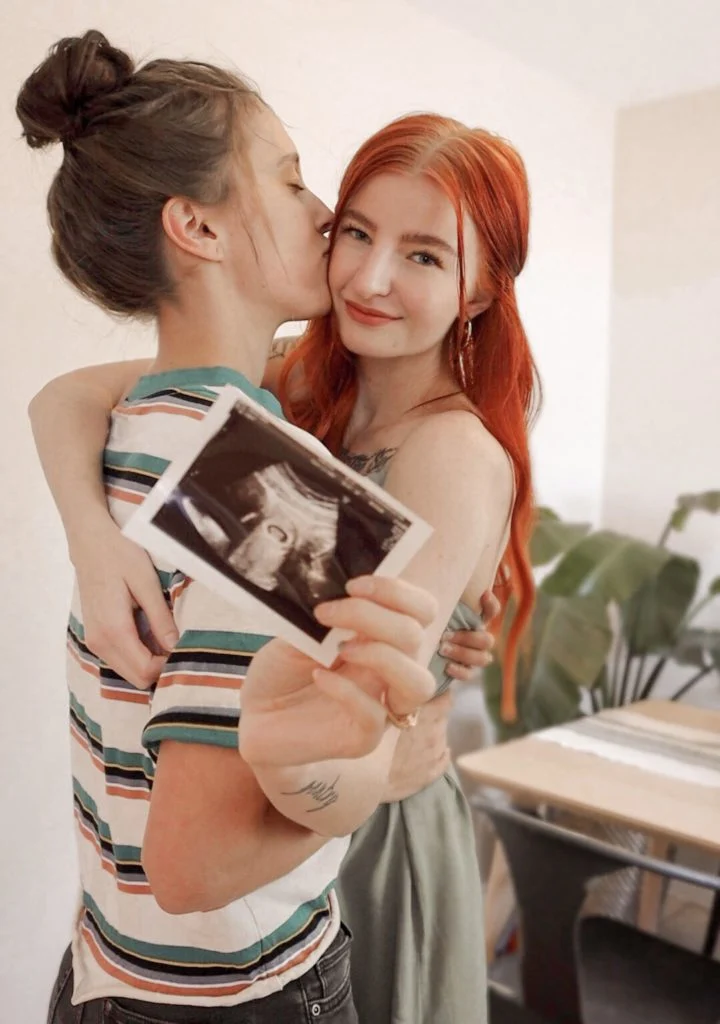Lately, I’ve been moving through life on autopilot, handling the usual tasks that come my way. With my in-laws visiting from abroad, our routine has been totally thrown out of whack. Then it hit me: I hadn’t gotten my period yet. Am I late? Wait a minute, I don’t think it’s due just yet. Ever since my husband’s vasectomy—an event I opted to witness out of sheer curiosity—and my decision to stop taking the pill, I’ve been a bit lax about tracking things. Honestly, for the past couple of years, there have been nights when I’ve woken up because my period decided to show up in our bed. Really? Am I still in middle school? I’ll pause for a moment so you can roll your eyes or cringe appropriately (and you totally should).
A few days later, concern started to creep in. Yep, I’m definitely late. I think I felt some cramps about a week ago, but they came and went. Instead of just driving to the store for a pregnancy test, I foolishly opted to Google “pregnancy after vasectomy.” Wow. Did you know that in some rare cases, a man’s tubes can reconnect years after a vasectomy? It reminded me of my mom’s stories about chickens running around after their heads were cut off. But my husband’s “head” was figuratively removed two years ago. This can’t be happening.
Turns out, it wasn’t. I got my period while driving to the store to buy a test. Seriously, it happened in the car.
Fast forward a week. I was on a work trip when I spotted an adorable new mom, her baby snuggled in a sling, gently kissing his head. I barely made it onto the plane before I was in tears. Pull yourself together, I thought. You didn’t even want another child. You’ve already got three amazing kids. How selfish can one person be? Think about all those women who long for just one child and can’t have it.
But the thought of another child had wormed its way back into my mind. Even though I thought the door was firmly closed, it had cracked open just a tiny bit.
Here’s the thing: once a woman gets married, it’s like the world can’t wait to ask, “So, when are you having kids?” After you pop out a kid, the next question is, “When are you giving that little one a sibling?” This whole conversation about how many kids you want seems fair game, but women often get harshly judged based on their responses. Say you don’t want kids, and you’re labeled selfish. Have the “right” number of kids—usually two or three—and everyone’s cheering. Have too many kids (like four or more), and eyebrows raise everywhere. I once heard someone ask a friend with five kids, “Why did you have so many?” As if she was just going to head home and decide which of her five kids to return.
Eventually, there comes a moment—either by choice or circumstance—when the baby-making phase comes to a close. While we might stop expecting new arrivals, it’s hard to shake the feelings tied to the hope, anxiety, and love that come with a new child. I realized it took me a pregnancy scare and two years to finally mourn the end of that chapter. I feel fortunate that I had the choice, and I’d make the same decision again. Yet, the fleeting thought of another child made me even more grateful for what I already have. Maybe with three kids, two working parents, and endless distractions, that’s exactly the perspective I needed. Oh, and a calendar to track my periods—seriously, how gross can one person be?
For more insights on similar topics, check out this great resource about pregnancy and home insemination. And if you’re interested in at-home insemination kits, visit this site for an excellent selection. Plus, for additional information, you can find more tips in our other post here.
Summary
In this candid reflection, Lisa shares her journey through the chaotic realities of family life, the societal pressures around childbearing, and her unexpected emotional responses to the idea of having more children after her husband’s vasectomy. Ultimately, she embraces gratitude for her existing family and acknowledges the complexity of moving on from the desire for more children.
